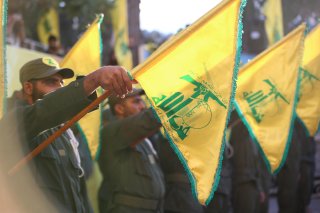Is Lebanon the Next Battlefront?
As the situation at the Israel-Lebanon border escalates, the room for miscalculation grows.
Resolution 1701, at its core, establishes strict security arrangement measures in Provision 8, agreed upon by both Hezbollah and Israel. Provision 8 mandates full respect for the Blue Line, a UN-recognized border area separating Lebanon and Israel. It also establishes an area between the Blue Line and the Litani River free of any armed groups and assets except the Lebanese army and the UN Interim Force in Lebanon (UNIFIL). Furthermore, it mandates the disarmament of all non-state armed groups in Lebanon in accordance with the Taef Accord, which ended Lebanon’s civil war in 1990.
On a broader level, as the humanitarian situation in Lebanon worsened, Resolution 1701 was a political compromise then secured by the United States and France to end the hostilities, though with the misplaced belief that a strengthened UNIFIL would be a capable force to maintain peace. According to an analysis by the Stockholm International Peace Research Institute (SIPRI), while Resolution 1701 strengthened UNIFIL’s peacekeeping mission in Lebanon, for instance, giving it a proactive role in supporting the Lebanese government’s implementation of the resolution, UNIFIL suffered key vulnerabilities in its operational effectiveness. These included legal constraints on its use of force beyond its “areas of deployment” and a lack of clarity on responding to breaches of Resolution 1701.
Aside from UNIFIL’s shortcomings, the failure of successive Lebanese governments or political opposition to disarm Hezbollah since the end of the war has led the militant group to return and exponentially augment its military presence along the border. Notably, before the ongoing cross-border conflict erupted, Hezbollah’s new level of assertiveness along the border was evident, as seen in the increase of its positions along the Blue Line in recent months and, in recent years, in UNIFIL’s Area of Operations (AO). The killing in December 2022 of an Irish UN peacekeeper, reportedly by individuals linked with Hezbollah in a southern Lebanese town, a stronghold of the group, remains to be fully understood. It is unclear if it was accidental, as Hezbollah claims, or intentional, pending further legal proceedings.
According to Lebanon’s constitution, the power to declare war exclusively belongs to the state, particularly the executive power. However, given the unprecedented institutional paralysis in the Lebanese state, with no sitting president and a dysfunctional caretaker government, Hezbollah’s actions, including its escalatory strategy along the border, go almost unguarded. Inside Lebanon, uncertainty reigns as citizens navigate various sectarian and factional loyalties. However, Hezbollah’s political opponents categorically refuse the prospect of Hezbollah unilaterally declaring war against Israel. While there is a substantial consensus that a war with Israel would be catastrophic to an already collapsed economy, this view is shared even among Hezbollah’s lower ranks.
Given the above, it is clear that Israeli official statements are increasingly pointing to the prospect of a strike against Hezbollah if Lebanon does not commit to fully implementing Resolution 1701. As the situation at the Israel-Lebanon border escalates, the room for miscalculation grows. The implications for U.S. policy in the Middle East are challenging. An ideal solution would be to strengthen mediation efforts and set in motion a gradual implementation of Resolution 1701, without which another disastrous war between the two is highly probable.
Rany Ballout is a New York-based political risk and due diligence analyst with extensive experience in the Middle East. He holds a master’s degree in International Studies from the University of Montreal in Canada and a bachelor’s degree in Linguistics from Uppsala University in Sweden.
Image: Shutterstock.com.

